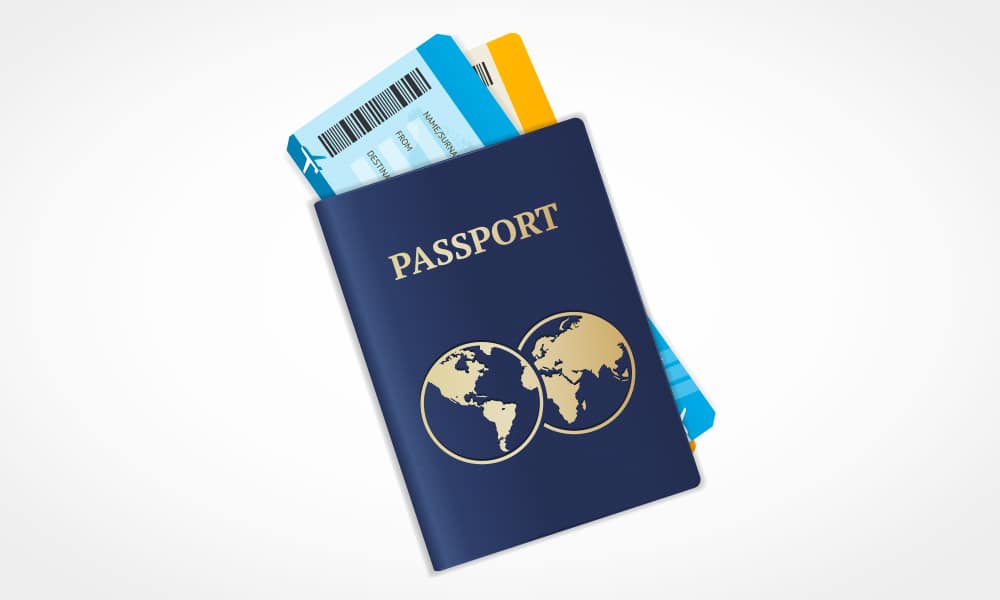


Does any of the traveller have any pre-existing medical condition like BP, diabetes etc? See what it means ›
Now covers COVID-19
Ways to Minimize Traveller's Environmental Impact
Most people cherish travelling. It rejuvenates us, breaks our monotony, and offers us a chance to see things from a new perspective. But on the other side of the coin is the risk associated with travelling, at a great cost to the environment. In fact, the tourism industry accounts for approximately 8% of global greenhouse gas emissions. This along with several other issues suggest that there's an urgent need for travellers to adopt more sustainable practices. With the rise of eco-tourism and other environmentally conscious practices, you can help minimize your environmental impact while exploring the world.
Travel Insurance Plans on PolicyBazaar#1
- Individuals
- Sr. Citizens
- Students
Understanding the Impact of Travelling on the Environment
Before we discuss solutions, let's first understand the environmental issues caused by our apparently harmless travel plans. We all know that flights are the fastest and most convenient way to travel long distances. However, air travel alone is responsible for about 2.5% of global carbon dioxide or methane emissions, and this number is projected to rise as more people take to the skies.

What's more, unregulated tourism has led to habitat destruction, water depletion, and increased waste generation in several popular destinations. This can have a long-term and even irreversible impact on the local flora and fauna, affecting the biodiversity of the place, and ultimately impacting the environment of that place.
If you have decided to be more conscious of your environmental impact while travelling, here are some effective ways to travel more sustainably:
-
Opt for Eco-Friendly Transportation
While international travel is impossible without taking a flight or two, you can still reduce your emissions when you reach your destination. Whenever possible, take public transportation like trains or buses. You can also use bicycles instead of flying or driving. If air travel is necessary, consider direct flights, as take-offs and landings create the most emissions.
Public transport and biking produce considerably lower greenhouse emissions per passenger. One such example where this effect was studied and considerably revered is our very own Taj Mahal. Due to sulphur and carbon emissions, the marbles showed faster deterioration. For more than a decade, electric vehicles have been introduced with an almost ban on fuel-based vehicles in its vicinity.
-
Stay at Green Accommodations
When booking your stay, look for hotels and lodges that prioritise sustainability. Many places now have certifications like LEED (Leadership in Energy and Environmental Design) or Green Key. Both of these certifications indicate environmentally friendly practices. Supporting eco-conscious businesses helps reduce the overall impact of your stay.
Even if you can't access such accommodations, you can always consider sharing options like hostels, where the usage of resources is shared and minimal per person.
-
Reduce, Reuse, Recycle
Who has not heard of the famous 3Rs? You'd be surprised how effective these Rs can be in reducing and minimising waste. Even if you're on a trip abroad, you can easily bring reusable items such as water bottles, shopping bags, and utensils to cut down on single-use plastics. In case you end up using them, make sure to dispose of them safely. Don't litter or spoil the environment. Many destinations nowadays also offer recycling programs, so make sure to dispose of waste responsibly.
-
Offset Your Carbon Footprint
Carbon offset programs are certificates linked to activities that reduce the amount of carbon dioxide in the atmosphere. One carbon credit represents the avoided emission or removal of one ton of CO2 or another greenhouse gas. Depending on the country, these programs are both compliance based as well as voluntary.
As of now, India is set to roll out a voluntary carbon credit trading system by 2026. However, several countries have mandated it and you will easily find international airlines that offer offsetting options. By buying these certificates, you can fund projects that fight climate change. Most of these offset programs fund renewable energy projects or reforestation efforts.
-
Support Local Businesses
Eating, shopping, or having your regular cuppa at a familiar food chain is definitely nice, but it is not always sustainable for local businesses and the ingredients they use. By dining at local restaurants, buying handmade items, and hiring local guides, you can help ensure that your money benefits the local community. Instead of large corporations, your money can boost a region's economy and promote sustainable tourism practices. Doing this will not only reduce your environmental impact but also enrich your travel experience.
-
Respect Nature and Wildlife
Have you heard of the principles of 'Leave No Trace'? These are simple yet effective ways to explore a region without disrupting its present state. You can do this by staying on marked trails, avoiding disturbing wildlife, and refraining from picking or damaging plants. Your respect for natural environments helps preserve them for future generations.
-
Educate Yourself and Others
Awareness is the key. If you have read this article so far, kudos to you! It's very important to be self aware as well as the impact our actions have on others, including our environment. You can learn about several environmental issues while preparing for your travel destination, as these will vary across the globe. Some areas may be facing water shortage issues, while some may have other challenges. You can understand them to get an idea and prepare for your trip accordingly. You can also share this knowledge with fellow travellers, to encourage others to follow sustainable travel practices. As the world becomes more interconnected, let's strive to travel in a way that honours and protects the environments we cherish.
You May Like to Read: Ways to Explore a Non-English-Speaking Country
Wrapping it Up,
By being mindful of our choices, we can significantly reduce our environmental footprint. Every small action contributes to a larger impact, helping to preserve the beauty of our planet for everyone. Preparing well for our journey will ensure that we minimise any negative impact that we may have on others and the environment. As you learn and prepare for your upcoming trip, don't forget to secure it with travel insurance. It will ensure that any mishaps beyond your control are covered, minimising any negative impact it may have on your trip!
STANDARD TERMS AND CONDITIONS APPLY. For more details on risk factors, terms, and conditions, please read the sales brochure carefully before concluding a sale.
Policybazaar Insurance Brokers Private Limited, Registered Office - Plot No.119, Sector - 44, Gurgaon, Haryana - 122001 | CIN: U74999HR2014PTC053454 | Policybazaar is registered as a Composite Broker | Registration No. 742, Valid till 09/06/2027 | License category - Composite Broker | Contact Us | Legal and Admin Policies
*Price shown is for a 180 day trip to Thailand with 50 thousand dollar coverage for an adult of age 25 years

























































